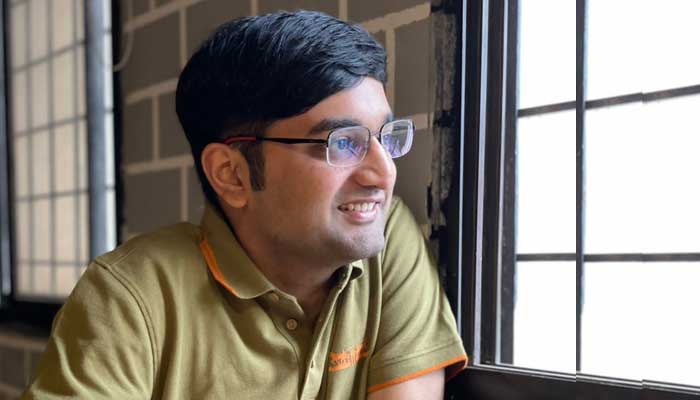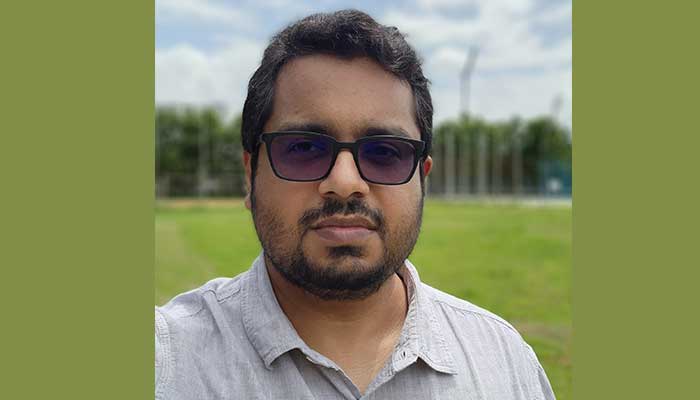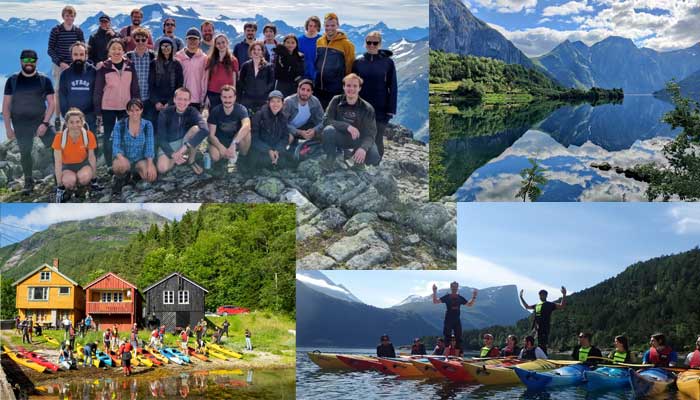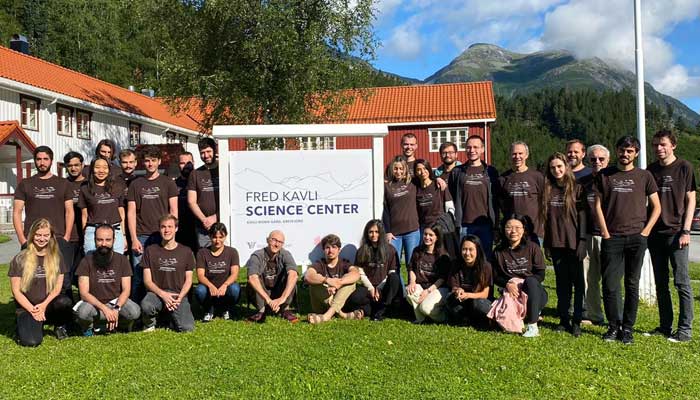On the heels of Masters student Kumar Neelabh’s return from the Computational NeuroScience Summer School held in Norway, we take a sneak peek at his area of research and other things brewing at the Memory and NeuroDynamics Lab.
At IIITH, the introductory course on Neural and Cognitive Modelling recommends a book by renowned neuroscientist, Peter Dayan. Kumar Neelabh, who was among 25 other international students at the Mathematical Methods in Computational NeuroScience Summer School organised by the Norwegian University of Science and Technology (NTNU), found himself attending lectures by the legend himself. “(Though) he addressed us via Zoom, the talk was highly anticipated and did not disappoint,” he exclaims.

The summer school that was recently held in Eresfjord, Norway covered the most important methods needed for advanced computational neuroscience research drawing from a combination of Physics, Mathematics and Engineering. “The topics that were covered closely align with my research area,” says Neelabh. It was a precise description of the latter coupled with a recommendation letter from his advisor, Dr. Vishnu Sreekumar that helped in clinching a spot at the school with a stipend covering accommodation and food costs.
Neural Dynamics and Dimensionality Reduction
Neelabh is engaged in the pursuit of decoding neural dynamics at Memory and NeuroDynamics (MANDA) Lab in the Cognitive Sciences department. His specific interests lie in learning how neural activities gradually evolve and become more refined over time. “When we initially begin to learn something new, our brain activity looks a certain way. When the information is learned, the brain activity gets modified. And when the same information is learned over and over again, the initial randomness in neural activity may give way to more consistency over a period of time. To understand these neural trajectories, we typically use dynamic systems techniques. Neelabh has been using both existing methods and also trying to develop some new ones to shed light in this area,” explains Dr. Sreekumar.

Another topic relevant to Neelabh that was covered in great detail in Norway was on dimensionality reduction. Dr. Sreekumar explains it as the process of focusing on the key features of neural activity that researchers are interested in while filtering out the “noise”. “Neural activity resides in a high dimensional space and there are a lot of brain regions and a lot of time points that we look at. To make this huge space tractable, as a data analysis technique, we need to reduce its dimensionality. There are many different methods available to do this, and it is really both an art and a science to identify and pick the right dimensionality reduction method” he says.
Lifelogging
When it comes to the work on episodic memory done in the MANDA lab, the focus is on real world memory and experiences. This is in contrast to the influential memory theories of yore that have been a result of experiments on the recall of random words or word lists in a lab setting. “Our ability to remember things revolves more around experiences, events, or situations we find ourselves in,” says the professor. One way the research group is contributing to it is via lifelogging. Here a smartphone automatically captures everyday experiences as they happen in the real world. Memory experiments are then designed with such realistic data collected from the participants. “If it works out, we would eventually like to design an app which will implement a training protocol aimed at enhancing people’s memory for their own life events and thus help people with mild memory impairments improve their quality of life.”
Language and Memory
Just like some visual images are more memorable to us than others, certain words and the concepts they represent are intrinsically more indelible. While a lot of memorability behavioural studies have been conducted for the English language and in Western populations, there hasn’t been something similar for the Indian populace. Dr. Sreekumar and his group of researchers are conducting analogous experiments with Indian indicators. “We are also developing models to try and predict memorability scores both in English and Hindi using semantic networks. We have some ideas on how to apply it in the real world by building predictive algorithms for memorability. For instance, if you write something, the algorithm can give you a score denoting how memorable the piece is, or maybe it can even give you recommendations for word replacements and such.”
Identifying Outliers
In an effort to contribute to global efforts in understanding outlier conditions that exist in memory ability and disability, Dr. Sreekumar has also invited calls from people with superior autobiographical memory. “These are essentially people who remember every single day of their lives in great detail. Such people have been identified in the West and it’s unlikely that similar people don’t exist in India. If we can find them, and conduct our own culture/language-specific tests, we can gain insights into how the brain operates at the extremes of human ability which in turn may give us ideas for how memory performance can be improved in people who need such support.”

Summer School Experience
As for the Norwegian summer school itself, it definitely wasn’t all work everyday. “The organizers, Ivan Davidovich and Benjamin Dunn, are two of the friendliest people I’ve ever met. It turned out to be a much better experience than I had anticipated. We had lots of fun. We went on treks, learnt kayaking, watched Encanto, baked cakes, and played Avalon and Spyfall. We learnt about each other’s cultures – from music to cuisine and ended up bonding with each other,” remarks Neelabh.
To know more about the MANDA Lab, click here.

Sarita Chebbi is a compulsive early riser. Devourer of all news. Kettlebell enthusiast. Nit-picker of the written word especially when it’s not her own.


Next post